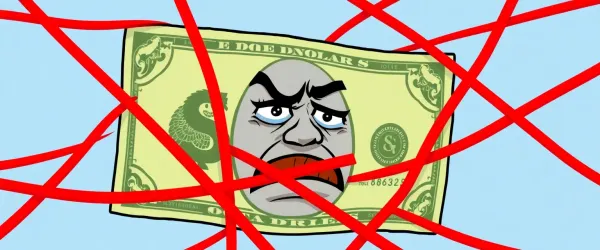
Donald Trump tariffs are going to make everything more expensive in the US
Donald Trump's tariffs are likely to increase prices in the US.

Respuesta
There is substantial evidence suggesting that Donald Trump's tariffs could lead to increased prices for consumers in the U.S. Studies of Trump's 2017-2020 tariffs indicate that the economic burden was largely borne by U.S. consumers . Specifically, tariffs were imposed on goods such as solar panels, washing machines, steel, and aluminum , and also on a wide range of goods from China, affecting over $380 billion in trade . These tariffs are considered a tax increase, with estimates suggesting an increase of nearly $80 billion . The mechanism by which tariffs raise prices is that they increase the cost of parts and materials, which in turn raises the prices of goods using those inputs . This effect has been empirically observed, with a 2020 Federal Reserve study finding that tariffs on steel and aluminum raised producer prices that were eventually passed on to consumers . Furthermore, a Tax Policy Center analysis projects that a 20% worldwide tariff and a 60% levy on Chinese goods could raise costs by $3,000 for the average U.S. household in 2025 . Predictions also indicate that in the case of new tariffs proposed for 2025, prices on imported products are expected to rise 10 percent in the next year and those on domestically produced goods to jump 14 percent . It’s also noted that tariffs generally lead to a one-time permanent increase in price levels .
However, it is also indicated that the impact of tariffs on consumer prices is not always straightforward and can be influenced by several factors . Some scenarios suggest that if businesses only pass on a portion (50%) of the tariff costs to consumers, the effect on inflation can be initially less severe, potentially even causing a decline in inflation during the first year due to other economic factors like excess supply or falling commodity prices . It's crucial to consider the availability of substitutes; if substitutes are readily available, the impact on prices is likely to be more muted . The long-term impacts on inflation are also dependent on how expectations respond to tariff-related price increases. When expectations are well-anchored to the inflation target, price increases caused by tariffs tend to have a temporary effect on other prices and wages . Furthermore, while tariffs are expected to boost domestic production , they can reduce U.S. output and economic growth by increasing costs for businesses and incentivizing Americans to work and invest less . In addition, the text highlights that the tariffs that Trump imposed led to a decrease in long-run GDP . While the text highlights that tariffs raise prices, there is no information about historical examples where they have led to a decrease in prices. Moreover, the text is not clear if the tariffs are the main driver of price increases, other external factors, such as supply chain issues or currency exchange rates could also influence the increase of prices .
Based on the provided information, the statement that Donald Trump's tariffs are likely to make everything more expensive in the US is largely true. The information provided strongly suggests that tariffs imposed by Donald Trump, both in the past and potentially in the future, have increased or are expected to increase consumer prices . While certain factors may slightly mitigate these effects , the core mechanism of tariffs adding to the cost of goods, and hence prices, is consistently outlined. Although there is some discussion regarding how much of the tariff costs are passed onto the consumer, the overwhelming evidence is that this is a substantial driver of increased prices . The predicted effects of tariffs on domestic production and the negative impacts on GDP further support the general claim about prices increasing. Therefore, the assertion that Donald Trump's tariffs will make everything more expensive in the US is supported by the provided evidence.
The statement is likely true.
1
2
3
3
3
4
5
6
7
7
7
7
7
6
3
3
7
1
2
3
5
7
7
6
3

